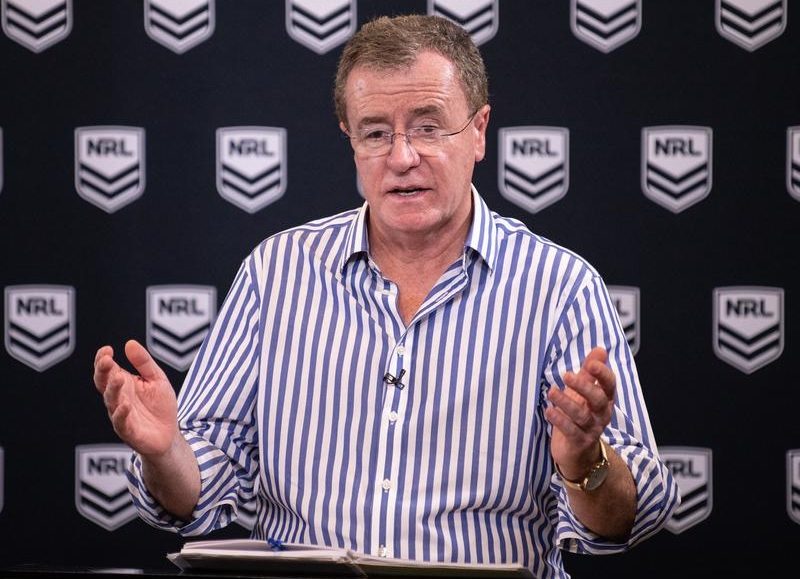
The NRL is considering the use of “skeletal tracking” to pick up forward passes as debate continues to rage about the merits of keeping the controversial, multi-million-dollar bunker.
Referees’ boss Graham Annesley has revealed the league is researching the viability of such extreme motion technology following another round blighted by video refereeing howlers.
Annesley said skeletal tracking was essentially “measuring the movement of every limb and the bones within the limb” to determine whether the hands of a pass actually released the ball forwards or backwards.
Soccer, Major League Baseball, the NBA and NFL have all trialled optical player tracking and now the NRL – currently in contract negotiations with its technology providers – is balancing the cost effectiveness of going down a similar path.
“But I’d be lying to you if I said we were close at this stage,” Annesley said.
The only certainty, he said, was that the NRL would continue using electronic assistance for officiating in some shape or form.
Scrapping the bunker is a matter for the Australian Rugby League Commission and while Annesley said there was no suggestion this would happen, fans and critics needed to accept that no system was fool proof.
“We’ll definitely have some form of replay system in place. If we had no form of replay system in place to help with decision making, we’d be getting a lot more decisions wrong,” he said.
“And part of that equipment could include this sort of technology. It doesn’t necessarily mean it has to be in a centralised bunker.
“(But) there’s no point throwing out the baby with the bathwater. There will be errors from time to time. We’ve never hidden from that.”
Bunker officials Steve Clarke and Ben Galea were dramatically dropped late last Saturday night after botching a call in Cronulla’s tight win over St George Illawarra and Annesley said there was no guarantee the pair would be restored this week.
“We have to see who is available, but you don’t just on the basis of one decision wipe these people forever so they’ll be back,” he said.
“And hopefully they’ll be better for the experience and they’ll have learnt something from it.”
In another development, senior referees Ashley Klein and Henry Perenara could return to the bunker as early as this round having previously been locked out of the biosecurity bubble.
“Pre-COVID, they would referee games on one day of the weekend and during other games they would act in the bunker,” Annesley said.
“They’re keen to get back involved. The only reason they haven’t been doing it this year is because of the COVID restrictions and the referees are in a bubble just like the clubs are in a bubble.
“But late last week we had our biosecurity experts go out to the bunker to have a look at how we could make some alterations to the arrangements that would allow individual referees to come in.”




